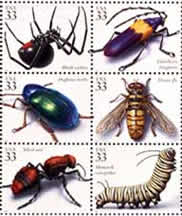I miss seeing the back end of a bug. This summer I sensed a disturbance of some sort. There were hardly any ladybirds, almost no butterflies (only the odd cabbage white) and barely a wasp. Very, very odd. I noticed early on that the orchard would crop moderately (as opposed to well); I put this down to the slow spring and accompanying lack of pollinators. But I wonder now whether the silly December we had, with daffodils all over the place and everyone in short sleeves, followed by the later cold snap, followed by the interminably slow spring, may have dealt a seriously deleterious blow to Britain’s overall insect population.
It would appear that this decline in insects is not limited to North Essex. The State of Nature report, published last week, brings together the findings of more than 50 organisations. It highlighted the particular plight of insects, suggesting a 59% decline since 1970. The general point was brought home to me recently in a conversation with a friend. He is 80 and remembered that in the 1960s, driving five miles down the road to the local town (Halstead) in high summer would leave the front windscreen of his car thick with bugs. Thinking about it, I remember when I started driving barely more than a decade ago, I would have to buy those bug wipes from petrol stations when on long journeys. This year there has been barely a smudge on my windscreen. Do they even make bug wipes anymore? And didn’t there used to be special windscreen wiper things in green liquid on petrol station forecourts up and down the country precisely to de-bug?
I build bug hotels and leave wood rotting around the place, but my instinct is that until our farming brethren take insects seriously (especially when it comes to their use of pesticides), we insect-friendly gardeners will be like Sisyphus, pushing a boulder to the top of the hill only to watch it roll back down again. I was chatting to a farming friend (a very good farmer as it happens) who had a bad year of beans and put it down to the slow spring and lack of pollinators. But what if there is an inflection point in the general insect population beyond which crops simply don’t pollinate well? And what if we are approaching that point? Is crop failure the only thing that will cause people to take this decline seriously? Indeed, the State of Nature report suggests the UK is among the most nature-depleted countries in the world, with most of the country past the threshold at which “ecosystems may no longer reliably meet society’s needs”.
An intensely seasonal approach to life is no doubt a gardener-cum-farmer thing. Every year about now, a few particularly vivid memories seem to fall from the general swirl of summer and then accompany me into the darker half of the year. This year, for example, they include the intense red of a particular dahlia I grew, a vision of the meadow together with a sense that it has finally found its feet, and the exploding sweetness of a freshly picked carrot. I can’t choose these memories; they just fall into my mind and provide ballast against the hard, short days of winter. Sadly, this year, in among these summer ecstasies is a memory of absence and an accompanying anxious thought - will the insects be back next spring.
Source: Charlie Hart in the Guardian, 21 September 2016
https://www.theguardian.com/lifeandstyle/gardening-blog/2016/sep/21/bri…

- Login om te reageren
